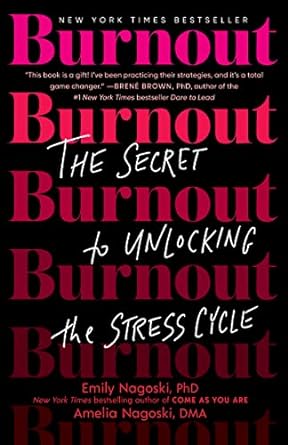More on this book
Community
Kindle Notes & Highlights
Read between
April 7 - April 23, 2024
Generally benign: preferring tidiness and organization over messiness; being detail-oriented and checking your work for mistakes; and having high standards for yourself or others. Any of these factors can become toxic and, at their extreme, are even associated with obsessive-compulsive disorder.
Generally toxic: believing that if things aren’t perfect, they aren’t any good—e.g., if you make one mistake, everything is ruined—and feeling pressure from other people to succeed at everything you do. These domains of perfectionism are associated with depression, anxiety, disordered eating, negative relationships, and feelings of helplessness in the world.
The opposite of harsh self-criticism and toxic perfectionism is self-compassion.
self-compassion is good for you. Or at least, the absence of self-compassion is harmful—it results in self-judgment, isolation, and overidentification with our suffering.
Diligent practice of self-compassion works; it lowers stress hormones and improves mood.8 And many years of research have confirmed that self-forgiveness is associated with greater physical and mental well-being.9 All without diminishing your motivation to do the things that matter to you.
In the animated film Inside Out, Joy can’t cheer up Bing Bong by telling him “Hey, it’s gonna be okay. We can fix this!” Positive reappraisal. It doesn’t work. Instead, it’s when Sadness sits with him and cries with him in compassionate sympathy that Bing Bong feels better. Especially among people with high self-criticism and shame, turning toward your internal experience with kindness and compassion is more healing than positive reappraisal.17
A Short-Term Quick-Fix Gratitude Boost is gratitude-for-who-you-have.
A Long-Term Gratitude Lifter is gratitude-for-how-things-happen. At the end of each day, think of some event or circumstance for which you feel grateful, and write about it: 1. Give the event or circumstance a title, like “Finished Writing Chapter 8” or “Made It Through That Meeting Without Crying or Yelling.” 2. Write down what happened, including details about what anyone involved, including you, did or said. 3. Describe how it made you feel at the time, and how you feel now, as you think about it. 4. Explain how the event or circumstance came to be. What was the cause? What confluence of
...more
We each have a “madwoman” in our psychological attic. She has the impossible job of managing the chasm between what we are and what Human Giver Syndrome has told us to be.
As Brittney Cooper writes in Eloquent Rage, “Happiness is predicated on ‘happenings,’ on what’s occurring, on whether your life is going right, and whether all is well. Joy arises from an internal clarity about our purpose.”
The stepping stone to joy is feeling like you are “enough,” and feeling “not enough” is a form of loneliness. We need other people to tell us that we are enough, not because we don’t know it already, but because the act of hearing it from someone else—and (equally) the act of taking the time to remind someone else they’re enough—is part of what makes us feel we’re enough. We give and we receive, and we are made whole.
Just because you’ve dealt with a stressor doesn’t mean you’ve dealt with the stress. And you don’t have to wait until all your stressors are dealt with before you deal with your stress. Which is to say, you don’t have to wait for the world to be better before you make your life better—and by making your life better, you make the world better.
“Human Giver Syndrome” is the contagious false belief that you have a moral obligation to give every drop of your humanity—your time, attention, energy, love, even your body—in support of others, no matter the cost to you. Pay attention to how different it feels to interact with people who treat you with care and generosity, versus people who treat you as if they are entitled to whatever they want from you.


